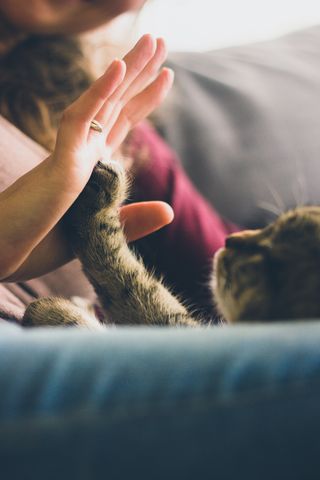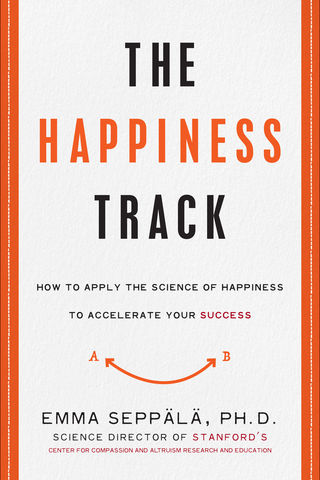What I Can Learn To Heal Animals

Source: Jonas Vincent/Unsplash
A famous survey conducted in 2004 showed that our social networks are decreasing dramatically. In fact, the #1 reason people are seeking out therapy is loneliness. The New York Times calls it an "epidemic of loneliness." And withal loneliness has powerful repercussions, including before bloodshed.
The Healing Power of Pets
Those often-repeated statistics hide something of import: the elementary fact that animals are often the ones healing the wounds of loneliness in our lodge. Pets are oftentimes lifelines—fulfilling not but the need for company, not only the need to be loved, but our own profound need to dear. Of course this applies not just to people without other people. And then many of us who accept enough of homo companionship as well feel a special bond with a pet.
Such feelings are existent and appropriate. Research shows that just looking into the eyes of your pet can lower your heart rate. Their presence solitary is enough to calm you down, to give you warmth, to let you feel loved and soothed. 1 wonderful example is companion dogs trained to recognize an oncoming panic assail who help veterans in their struggles with anxiety. Equine-facilitated therapy (therapy using horses) is doing wonders for troubled teens and suffering adults. Companion animals assistance all kinds of individuals with special needs—providing care that we humans can't or won't give one another. More and more than people - with or without anxiety or special needs - are feeling the demand for "emotional support animals." Shut encounters with animals soothe us.
Our View of Animals is Scientifically Inaccurate
Despite the power of animals to benefit mental wellness, we use linguistic communication like "stop acting similar an animal" - equally if animals were somehow beneath us. Such language is scientifically inaccurate.
No other brute destroys its surround as we do. In fact, in their natural country, each creature contributes to the overall ecosystem, helping maintain residuum on the planet. The only time you see a species destroying the environment is if a foreign species has been introduced and becomes invasive, creating an ecological imbalance. So the real question is: Do nosotros continue to take function in the human destruction? Or do we kickoff acting like other animals and create balance?
We often recollect of animals equally dangerous. Simply if you look at the almost dangerous animals on the planet, those that take human lives —the ones we fright nearly, the sharks, wolves and bears—they are nowhere near the top of the list. At the very summit is the human existence, ahead of even the affliction-carrying mosquitos.
Animals Have Feelings & Morals
Why is it that we don't think of other animals as equal to us? Why is it that we consider it animals' duty to feed or serve us in some way? Why is information technology that we observe sport in killing them? 1 reason may be that nosotros consider animals to be "base." We couldn't be more than wrong.
If you really look at the psychology of animals, yous come across that they don't require more than they need, they don't take more than they crave, and they don't destroy anything unnecessarily out of greed. In fact, they don't reflect our basest instincts so much as our finest qualities.
If you have had pets in your life, y'all know that each animal has its very own distinct personality, and an immense capacity for love and gentleness. Protective, caring, playful, sad, aroused—all of the emotions we meet play out in ourselves we besides encounter in our animals.
Our most noble faculties—altruism and compassion, moral states we concur in such high regard—are also nowadays in rats. A rat will go out of its way to help another rat that is injured, inquiry shows (don't believe me? Watch the video). Franz de Waal, renowned primatologist convincingly argues in his volume The Bonobo and The Atheist that animals take deep-seated morals and altruism. Virginia Morell, in her volume Animal Wise, interviews hundreds of scientists and persuasively argues that animals tin think and feel in similar means to united states. Perchance it will have witnessing the nobility in animals to tap into the dignity in ourselves.
What Nosotros Stand to Learn from Animals
Ironically, our greed for consuming animals is one of the major ways we are destroying ourselves. Animal husbandry is the 2nd-greatest source of greenhouse gases in the world. The country of the globe, with its enormous human population, will drive us to one end—the demand to stop killing animals. In a mode, our current overpopulation is forcing us to become more empathetic.
It takes boldness to go confronting the grain, to live with compassion, to meet nature and the animals in it as deserving of life, non just as bolt here to serve united states of america. But most of all, it takes heart. Animals have an incredible ability to empathize with one another, to help ane another, to feed one another. All of our virtually beautiful characteristics—pity, kindness, and love—exist in animals as well. It is we who stand up to learn from them, non the other way around. Will we?

Source: HarperOne
For more on the science of compassion and happiness, see The Happiness Runway (HarperOne, 2106) at present available in paperback!
Source: https://www.psychologytoday.com/us/blog/feeling-it/201707/how-animals-heal-us-and-teach-us
Posted by: martinhambsood.blogspot.com

0 Response to "What I Can Learn To Heal Animals"
Post a Comment